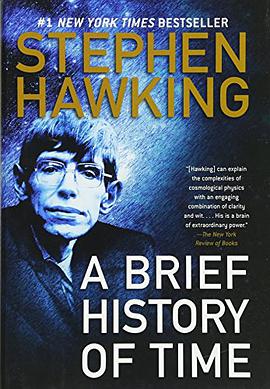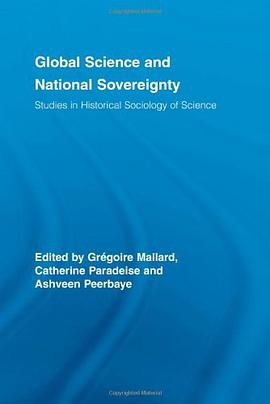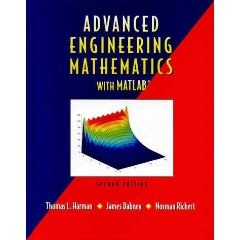

具體描述
#1 NEW YORK TIMES BESTSELLER
Published more than two decades ago to great critical acclaim and commercial success, A Brief History of Time has become a landmark volume in science writing. Stephen Hawking, one of the great minds of our time, explores such profound questions as: How did the universe begin—and what made its start possible? Does time always flow forward? Is the universe unending—or are there boundaries? Are there other dimensions in space? What will happen when it all ends?
Told in language we all can understand, A Brief History of Time plunges into the exotic realms of black holes and quarks, of antimatter and “arrows of time,” of the big bang and a bigger God—where the possibilities are wondrous and unexpected. With exciting images and profound imagination, Stephen Hawking brings us closer to the ultimate secrets at the very heart of creation.
This landmark volume in scientific writing leads us on an exhilarating journey to distant galaxies, black holes, and alternate dimensions, and includes Professor Hawking's observations about the last decade's advances -- developments that have confirmed many of his theoretical predictions. Makes vividly clear how Professor Hawking's work has transformed our view of the universe.
著者簡介
Stephen Hawking, who was born on the anniversary of Galileo’s death in 1942, held Isaac Newton’s chair as Lucasian Professor of Mathematics at the University of Cambridge for thirty years. Widely regarded as the most brilliant theoretical physicist since Einstein, he is also the author of Black Holes and Baby Universes, The Universe in a Nutshell, A Briefer History of Time, The Grand Design, and numerous scientific books and papers.
Biography
In the universe as a whole, the nature of black holes may be one of the most puzzling mysteries. No less puzzling, in the slightly smaller universe of book publishing, is the astounding popular success of Stephen Hawking's 1988 book on the matter, or anti-matter, as it were: A Brief History of Time: From the Big Bang to Black Holes.
Clocking in at just over 200 pages, it was, indeed, brief, but it was hardly the easy read its marketers promised. Nor did it stray much beyond the tone of a scholarly lecture, though at times it did take quick autobiographical peeks into Hawking's personal life. Still, it is just the author's persona that may have been the selling point prompting more than 10 million people worldwide to pick up a copy -- and to have it translated into more than 40 languages in the 10 years since its release.
For Stephen Hawking is an instantly recognizable public figure -- even for those who haven't delved into his so far unprovable theories about black holes. Stricken by amyotrophic lateral sclerosis (ALS) -- or Lou Gehrig's disease, as it is called in the States -- while he was working toward his doctorate at Cambridge University, this Englishman is known for the keen wit and intellect that reside within his severely disabled body. He uses a motorized wheelchair to get around and a voice synthesizer to communicate -- a development, he complains, that has given him an American accent. He has guest-starred, in cartoon form, on an episode of The Simpsons and has appeared in the flesh on Star Trek: The Next Generation, using the benefits of time travel to play poker with Albert Einstein and Isaac Newton. (He has said he doesn't believe in the theory himself, noting that the most powerful evidence of its impossibility is the present-day dearth of time-traveling tourists from the future.)
The son of a research biologist, Hawking resisted familial urging that he major in biology and instead studied physics and chemistry -- as a nod to his father -- when he went to Oxford University as a 17-year-old. In academic writing, Hawking had an extensive career pre-History, starting with The Large Scale Structure of Space-Time, coauthored with G.F.R. Ellis in 1973. But in the late 1980s, faced with the expenses incurred by his illness, he took up Bantam Books' offer to explain the mysteries of the universe to the lay public.
"This is one of the best books for laymen on this subject that has appeared in recent years," The Christian Science Monitor wrote in 1988. "Hawking is one of the greatest theoretical cosmologists of our time. He is greater, by consensus among his colleagues, than other expert authors who have written good popular books on the subject recently. And he is greater, by far, than the ‘experts' who have ‘explained' quantum physics and cosmology in terms that support a religious agenda." And The New York Times in April 1988 said, "Through his cerebral journeys, Mr. Hawking is bravely taking some of the first, though tentative, steps toward quantizing the early universe, and he offers us a provocative glimpse of the work in progress."
Since then, A Brief History of Time has been republished in an illustrated edition (1996) and as an updated and expanded 10th anniversary edition (1998). In Black Holes and Baby Universes and Other Essays, a collection of 13 essays and the transcript of an extended interview with the BBC, Hawking turned more autobiographical, mixing stories about his studies in college and the beginning of his awareness that he had ALS with thoughts on how black holes can spawn baby universes and on the scientific community's efforts to create a unified theory that will explain everything in the universe. And in The Universe in a Nutshell, his sequel to A Brief History of Time, Hawking takes the same approach as he did in his first bestseller, explaining to the lay reader such ideas as the superstring theory, supergravity, time travel, and quantum theory.
A common current in Hawking's writing -- aside from his grasp of the complexities of the universe -- is a sharp wit. In one of the rare personal reflections in A Brief History of Time, he said he began thinking about black holes in the early 1970s in the evenings as he was getting ready for bed: "My disability makes this rather a slow process, so I had plenty of time." In life, he has a reputation for quickly turning his wheelchair away of a conversation that displeases him, even running his wheels over the toes of the offending conversant.
Even questions about his muse are likely to draw an answer tinged with pointed humor. When Time asked Hawking why he decided to add explaining the universe to a schedule already taxed by his scholarly writing and lecture tours, he answered, "I have to pay for my nurses."
圖書目錄
Ch. 1 Our Picture of the Universe 1
Ch. 2 Space and Time 15
Ch. 3 The Expanding Universe 37
Ch. 4 The Uncertainty Principle 55
Ch. 5 Elementary Particles and the Forces of Nature 65
Ch. 6 Black Holes 83
Ch. 7 Black Holes Ain't So Black 103
Ch. 8 The Origin and Fate of the Universe 119
Ch. 9 The Arrow of Time 147
Ch. 10 Wormholes and Time Travel 159
Ch. 11 The Unification of Physics 171
Ch. 12 Conclusion 187
Albert Einstein 192
Galileo Galilei 194
Isaac Newton 196
Glossary 199
Acknowledgments 205
Index 207
· · · · · · (收起)
讀後感
或许这样说是绝对了一些,但是我们确实无法理解彼岸的东西,正如笛卡儿说的:人类一思考,上帝就发笑。或者如爱因斯坦说的:宇宙中唯有两件事物是无限的:那就是宇宙的大小与人的蠢笨。然而宇宙的大小我却不能肯定。 霍金当然没有这么说,但是他的说法是:每一种理论在诞生的时...
評分如果嫌《时间简史》看的费劲,推荐这个版本 1、简单 2、插图 3、全彩印 4、章节基本独立,相对短的篇幅讲完一个问题 当然,如果觉得这个简单,可以看原版,或者,还出过一个时间简史的插图版。
評分7.当爱因斯坦说到“上帝不掷骰子”的时候,他错了。鉴于黑洞给予我们的暗示,上帝不仅掷筛子,而且往往将骰子掷到我们看不见的地方以迷惑我们。 6.我注意到就连那些声称凡事皆为命中注定、我们无法去做任何改变的人,过马路的时候时也会一样的小心翼翼。 5.我的目标很简单,就...
評分作为一名理工科学生,对HAWKING的经典著作完全可以用"膜拜"来形容.最初读<时间简史>是在高中,开始是当作课外读物来看,读下之后却发现,这本书的力量已经远远超越了一本"科普读物",在随书的书签上有句话:"读霍金,懂不懂都是收获."我承认我对书中的理论只读懂一半,但是它带给我的却...
評分原文和翻译本结合起来看的,文科出生的科学弱童,有不少疑惑之处 时间简史读书笔记 - 第七章1 关于事件视界的疑问 http://blog.sina.com.cn/s/blog_454797770100cvmx.html 时间简史读书笔记 - 第七章2 黑洞和热力学第二定律 http://blog.sina.com.cn/s/blog_454797770100cvn4....
用戶評價
相關圖書
本站所有內容均為互聯網搜索引擎提供的公開搜索信息,本站不存儲任何數據與內容,任何內容與數據均與本站無關,如有需要請聯繫相關搜索引擎包括但不限於百度,google,bing,sogou 等
© 2025 book.quotespace.org All Rights Reserved. 小美書屋 版权所有




















